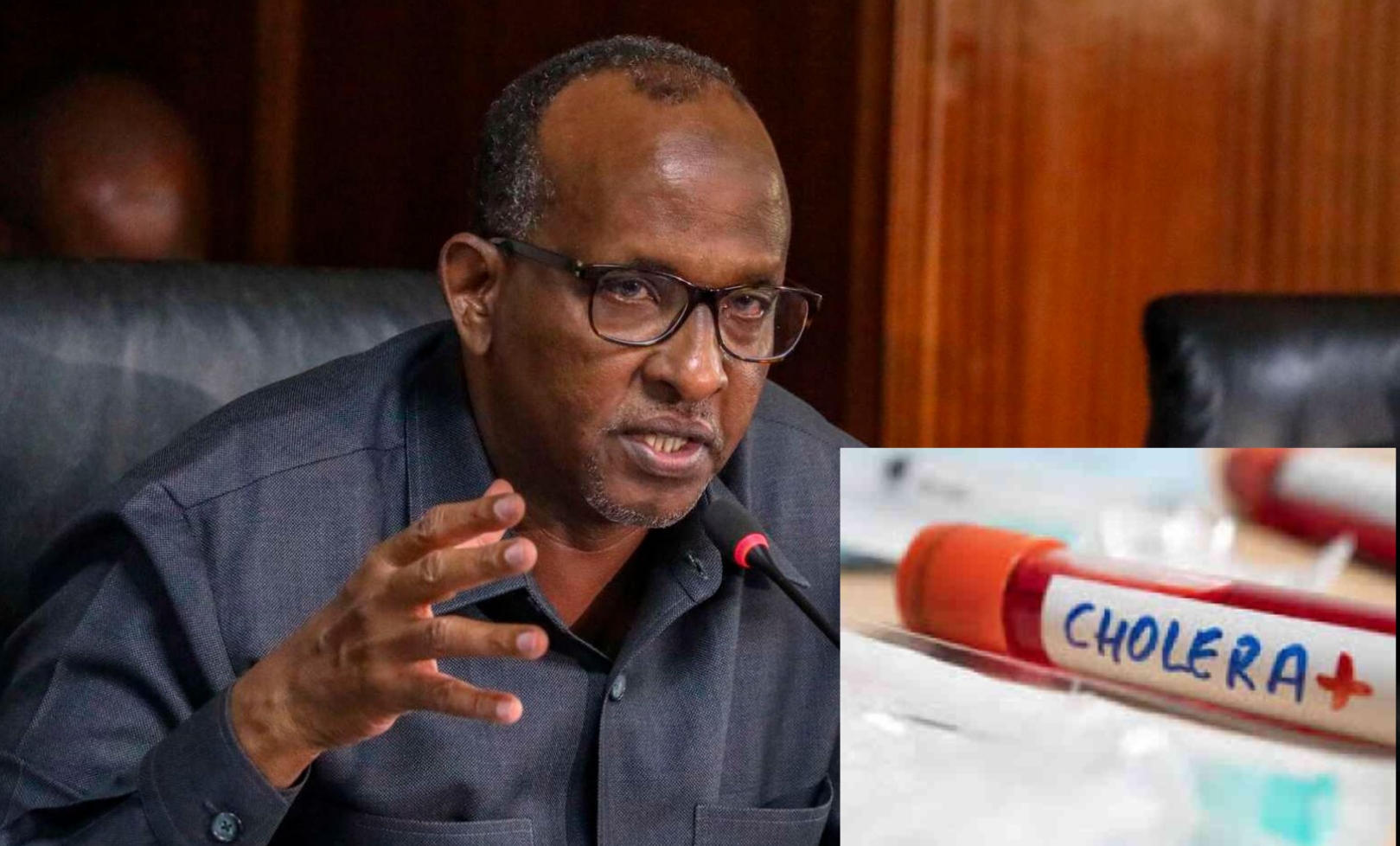Nairobi, April 8: The Ministry of Health has confirmed a Cholera outbreak in Kenya, caused by Vibrio cholera, a waterborne bacterium contracted through the consumption of contaminated food or water.
According to the Ministry of Health, counties including Migori, Kisumu and Nairobi are among the hardest hit by the infectious disease.
The outbreak, has left six dead, with 97 confirmed cases reported in the three counties.
Cholera symptoms include severe watery diarrhea, vomiting, muscle cramps and dehydration, which can lead to death if not treated promptly.
As of April 6, 2025, a total of 53 cases and one death were recorded in Migori County, particularly affecting the sub-counties of Suna East, Suna West, Kuria East, and Kuria West. Most of the patients have recovered, with two still hospitalised.
In Kisumu County, 32 cases and four deaths were reported, with the most affected sub-counties being Nyando and Muhoroni.
Nairobi County recorded 12 cases and one death, with affected sub-counties including Kasarani, Embakasi East, Embakasi Central, Roysambu, Kibra and Dagoretti South.
Health Cabinet Secretary Aden Duale, in a statement on Tuesday, emphasised the seriousness of the outbreak, calling for vigilance.
“Cholera is a serious disease that can lead to rapid dehydration and potentially death if left untreated. We are on high alert in all counties, and surveillance activities have been stepped up to respond to any alerts promptly,” he said
The Ministry said it is working closely with county governments to implement several interventions to curb the spread of the disease.
These include enhanced surveillance with active case searches, contact tracing, and the rapid deployment of response teams.
Health workers are being trained on surveillance, case management, water sanitation, hygiene practices and risk communication.
The Ministry also noted the implementation of risk communication and community engagement strategies, disseminating information through community health promoters, media, and public service announcements.
Additionally, Health Cs Aden Duale said the Ministry is enforcing water hygiene and sanitation measures, including household water treatment and food safety protocols, following field investigations that revealed the consumption of untreated water.
“We are focused on ensuring safe drinking water, proper hygiene and food safety to reduce further transmission,” he said.
It also recommended several public health actions, such as frequent handwashing with soap and clean water, drinking only boiled or chlorinated water, and proper food handling.
To prevent further spread, the Ministry urged the public to avoid untreated water from open sources like rivers and lakes and to store water in clean, covered containers.
It also advised proper waste disposal and regular disinfecting of surfaces used for food preparation.
Cholera patients were advised to seek medical attention immediately. The Ministry emphasised that at the first signs of diarrhea, individuals should begin taking Oral Rehydration Solution (ORS) and visit the nearest health facility.
“Cholera can cause rapid dehydration and death. Do not attempt self-medication or rely on traditional remedies,” the Ministry warned.
The Ministry of Health reassured the public that the country is adequately prepared to manage and contain the outbreak. Surveillance activities have been heightened, and community awareness campaigns are in full swing to ensure swift responses to emerging cases.
“We are committed to ensuring that every Kenyan is protected from emerging public health threats,” Duale said.
Since 1 January 2025 and as of 17 March 2025, 76 919 cholera cases, including 969 deaths, have been reported worldwide.
Since 20 February 2025 and as of 17 March 2025, 20 851 new cholera cases, including 374 new deaths, have been reported worldwide. In comparison, since 1 January 2024 and as of 17 March 2024, 66 532 cholera cases, including 930 deaths, were reported worldwide.
New cases have been reported from Afghanistan, Angola, Burundi, Democratic Republic of the Congo, Ethiopia, Ghana, Kenya, Malawi, Mozambique, Namibia, Nigeria, Pakistan, Somalia, South Sudan, Sudan, Togo, Uganda, United Republic of Tanzania, Yemen, Zambia and Zimbabwe.
The five countries reporting the most new cases are South Sudan (5 240), Afghanistan (4 947), Sudan (4 166), Angola (3 972) and Yemen (3 674).
New deaths have been reported from Afghanistan, Angola, Democratic Republic of the Congo, Ethiopia, Ghana, Kenya, Malawi, Mozambique, Nigeria, Somalia, South Sudan, Sudan, Togo, Uganda, United Republic of Tanzania, Yemen and Zimbabwe.
The five countries reporting the most new deaths are Angola (150), Sudan (96), Democratic Republic of Congo (86), South Sudan (69) and Ethiopia (22).







